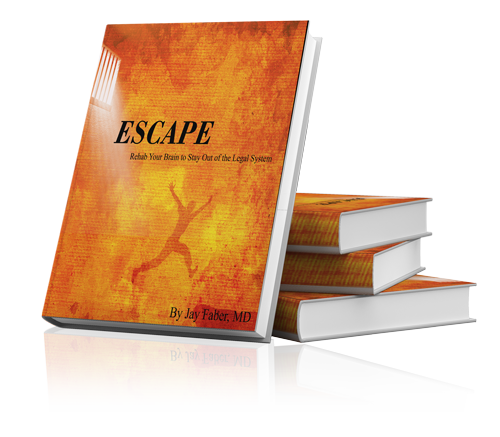Recently, one of my patients was moving to another state. One of the challenges that was discussed involved a lack of structured time. Just as recommended in “Escape,” I urged my patient to go home, break her day into morning-afternoon-evening and place one constructive activity per time slot.
Two weeks later when the patient came back to my office, I inquired about how she had done with her schedule. In an all too common scenario, I was told that there was no schedule…nothing. No work had been done. No time was set aside…nothing completed. Not necessarily surprised, I curiously questioned what had been causing some of the obstacles. “I don’t know what to put in these slots,” my patient said, “I get too overwhelmed. I just don’t know where to start.”
After hearing about this creative paralysis, I asked my patient what she enjoyed doing…for fun. One of her favorite pastimes involved hiking. “Hiking,” I repeated, “Fantastic.” I then went on to ask what town she would be moving. After hearing the location, I googled hiking and her new residence on my computer. Voila! Bingo! There on my big LED screen, Google had poured out all sorts of hiking trails that this person could check out. Moreover, we found a few hiking clubs that might be a great way to meet some new friends.
While we brainstormed about these possibilities, my patient said she was rather shocked about our conversation. Somewhat fascinated, “Shocked?” I stated. I probed further and asked “About what?” My patient responded,“I thought that you would want me to find a support group at the local university counseling center. That would seem like the more typical ‘mental health’ thing to do.” As I chuckled, I remarked that what we really wanted to do is create some passion and excitement. Also, we wanted to make some true genuine friends. Nothing against the counseling center, I just thought that the likelihood of finding engaging interest and camaraderie would be more doing of the activities and things she already enjoyed.
As our time ended, I suggested that my patient write down three other activities that were enjoyable and do the same Google exercise. For those who share similar struggles, I encourage you to try this exercise. It is quick. It is rather simple. And…It works.
Your schedule will help you look forward towards activities that create enthusiasm, enjoyment, and engagement. Without a schedule, our brains are more likely to look backward usually towards regretful experiences with less than pleasant emotions. So please take control of your time and not allow your time to control you.

